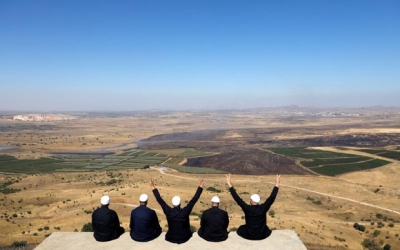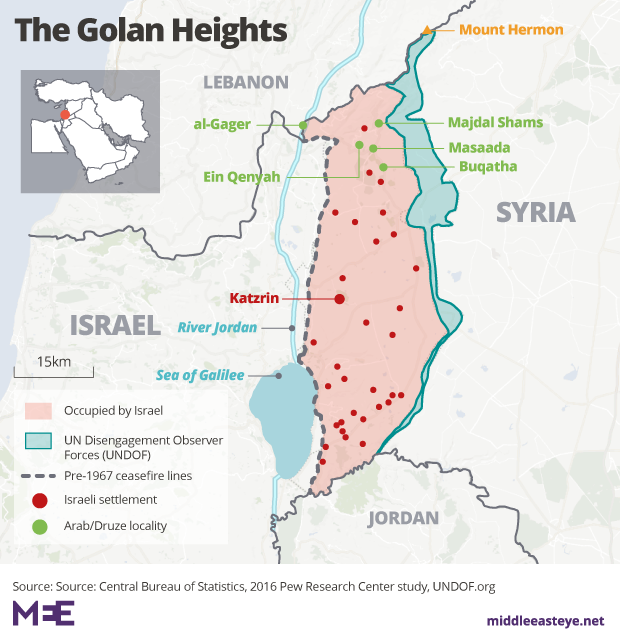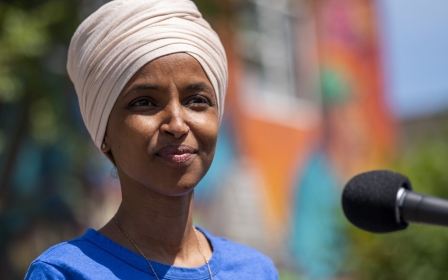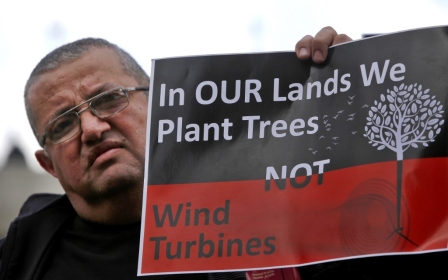Golan Heights 'will continue' to be Israel's, says Netanyahu after Blinken remarks
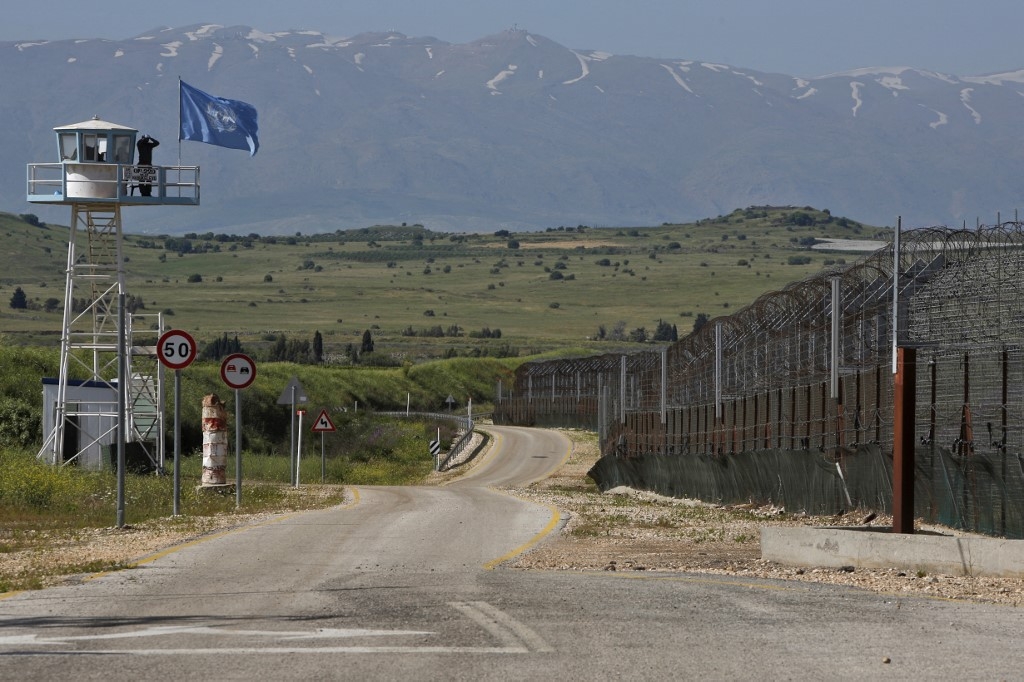
Israeli Prime Minister Benjamin Netanyahu responded to recent remarks by US Secretary of State Antony Blinken concerning the sovereignty of the Syrian Golan Heights, saying the territory "has been and will continue to be a part of the State of Israel".
Speaking to reporters during a visit to Zarzir, a Palestinian town in the north of Israel on Tuesday, Netanyahu rejected the notion that Israeli sovereignty of the Syrian region could ever be relinquished.
'The Golan is very important to Israel's security'
- Antony Blinken, US Secretary of State
"The Golan Heights has been and will continue to be a part of the State of Israel," Netanyahu told reporters.
"With an agreement or without an agreement, we are not leaving the Golan. It will remain under the sovereignty of the State of Israel," he continued.
When asked about the contested territory during a CNN interview on Monday, Secretary of State Blinken said that despite former President Donald Trump's recognition of the Golan Heights as Israeli, going forward, US policy regarding the area would depend on the regional situation and the future of Syrian President Bashar al-Assad's rule there.
New MEE newsletter: Jerusalem Dispatch
Sign up to get the latest insights and analysis on Israel-Palestine, alongside Turkey Unpacked and other MEE newsletters
'If the situation were to change'
"Leaving aside the legalities… as a practical matter, the Golan is very important to Israel’s security. As long as Assad is in power in Syria, as long as Iran is present in Syria, militia groups backed by Iran, the Assad regime itself - all of these pose a significant security threat to Israel," Blinken said.
"Legal questions are something else. And over time, if the situation were to change in Syria, that’s something we'd look at," the Secretary continued.
The Golan Heights was officially recognised as part of Syria when the country acquired independence in 1944 - years before the State of Israel was created.
A strategic plateau straddling Israel and Syria and overlooking southern Lebanon, the resource-rich region was captured by Israel during the Middle East war of 1967 and subsequently annexed.
Despite numerous wars, claims and counter-claims, the move was never recognised by the international community.
Former President Trump, however, in March 2019 signed an executive order recognising Israel's claimed sovereignty over the occupied Syrian Golan Heights, a move that experts at the time denounced as a violation of international law, which prohibits states from acquiring land by force.
The question of whether US President Joe Biden would take on Golan as one of the series of Trump-era foreign policy moves to reverse has been a top concern among Syrian and Palestinian advocacy groups, as well as the international human rights community.
But on Tuesday, Netanyahu rejected the notion that Israel could ever hand back the Golan to Syrian authorities.
"What, should we return it to Syria?" he said, noting the ongoing civil war. "Should we return the Golan to a situation where mass-slaughter is a danger?"
A water-rich region
The Golan is recognised as part of Syria by the United Nations. UN Resolution 242 calls for Israel to withdraw from the Golan and other territories it occupied in 1967, including Gaza and the West Bank.
However, Israel has repeatedly refused to do so, and in 1981 declared the territory formally annexed to Israel.
The Golan is thought to provide around one-third of Israel's freshwater supply. Water from the Golan travels to the Sea of Galilee and the Jordan River.
Compared to other regions occupied by Israel that may have primarily strategic or cultural significance, the conflict over the Golan is heavily driven by resources.
In the late 2000s, secret talks began between Syria and Israel that reportedly included the possibility that the territory would return to Damascus in exchange for a peace deal.
However, negotiations collapsed when Israel launched its war in Gaza in 2009.
Middle East Eye delivers independent and unrivalled coverage and analysis of the Middle East, North Africa and beyond. To learn more about republishing this content and the associated fees, please fill out this form. More about MEE can be found here.


